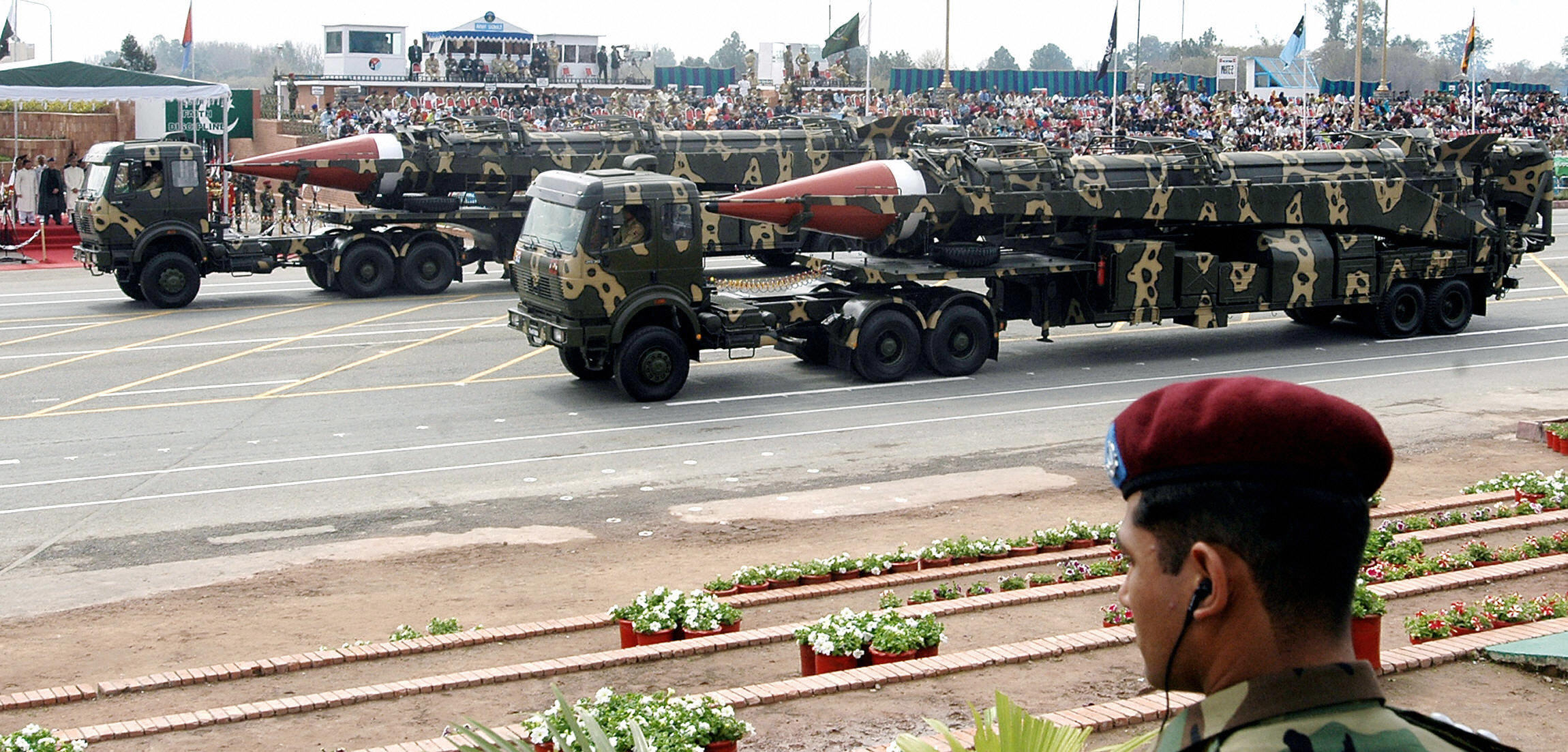Saudi Gets a Nuclear Army

An earthquake of a deal just happened in the Middle East. Saudi Arabia acquired virtually overnight protection beneath the Pakistani nuclear umbrella with the signing of a “strategic defense pact” with Pakistan. The deal also provides cash-strapped Pakistan a respite in what can only be termed a miraculous month for Pak diplomacy. In what is clearly a signal to Israel and the U.S., the Kingdom flexed by notifying the U.S. after the deal was signed.
The fact that Saudis will have the first "Islamic bomb" at their disposal is nothing new. Bob Woodward’s book War (2024) noted how Crown Prince Mohammed bin Salman once told Lindsay Graham, “I don't need uranium to make a bomb, I will just buy one from Pakistan.” It has always been an easy play for both Turkey and the Saudis to reach for hard-up Pakistan’s nukes as a backup. What is new is that so far they relied on the American umbrella, tacitly in Saudi’s case and through NATO and nuclear hosting in Turkey’s.
But Israel’s bombing of Qatar changed that dynamic. Qatar had an American base; the U.S. couldn’t stop Qatar from being bombed by a rabid American protectorate already mired in conflicts with five neighbours, Syria, Lebanon, Iran, Yemen, and Gaza and the West Bank. Now the Gulf monarchy is on the list.
The fact that a U.S. base cannot provide deterrence automatically pushed Turkey to seek rapprochement with Egypt and the Saudis to seek Pakistani nuclear weapons. The Joint Strategic Defense Agreement is interesting; it is a hint that the Pakistani strategic forces will be used for any contingency and enhance joint deterrence. It also automatically treats an attack on one to be an attack on the other. Unlike NATO, it leaves no room for consultation between the principals and leaves no ambiguity. In case there were any comprehension issues, the subsequent Pakistani comments clarified that the pact is a comprehensive agreement that encompasses all military means.
No one expected this to happen. It is common knowledge that the Saudi royalty funded Pakistan’s nuclear program, but making it explicit is a surest sign that Arabs are looking beyond the Americans, as the Americans have hitched their ride to one of the most aggressive states in the Middle East seemingly in perpetuity regardless of American public opinion.
Explaining the regional dynamic, the grand doyen of neorealism, Kenneth Waltz, wrote in 2012, “Israel’s regional nuclear monopoly, which has proved remarkably durable for the past four decades, has long fueled instability in the Middle East. In no other region of the world does a lone, unchecked nuclear state exist. It is Israel’s nuclear arsenal, not Iran’s desire for one, that has contributed most to the current crisis. Power, after all, begs to be balanced.”
Waltz had Iran in mind, of course. He added: “But the very acts that have allowed Israel to maintain its nuclear edge in the short term have prolonged an imbalance that is unsustainable in the long term. Israel’s proven ability to strike potential nuclear rivals with impunity has inevitably made its enemies anxious to develop the means to prevent Israel from doing so again.” The new deal brings a whole new angle to regional balancing. Of note, Pakistan’s nuclear-capable Shaheen can reach Tel Aviv in about 12 minutes. Iran has nothing like that. The deterrent factor of this arrangement is therefore hard to understate.
Subscribe Today Get daily emails in your inbox
Contrary to popular opinion, this probably has nothing to do with India. Although India’s recent “every terror attack is a war” doctrine will have to undergo some change in response to the deal, it is also possible that Pakistani forces will soon be in a conflict with the Houthis in Yemen.
But, at time of writing, it seems that Egypt has moved past its reservation about Turkish support of the Muslim Brotherhood since 2013. Turkey and Egypt will now jointly hold naval and air drills in the Eastern Mediterranean, a first in over a decade. Just as Saudi Arabia seals a strategic defense pact with Pakistan, Cairo and Ankara deepen cooperation, laying the groundwork for an Egypt–Turkey regional naval and strategic alliance.
The new Middle East will look very different if and when these arrangements are fully operationalized. It is the U.S. that now risks standing isolated.